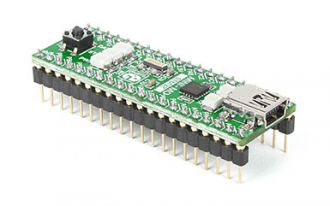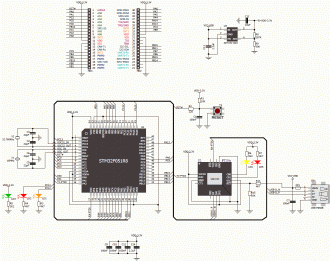
We strongly encourage users to use Package manager for sharing their code on Libstock website, because it boosts your efficiency and leaves the end user with no room for error. [more info]

Rating:
Author: MIKROE
Last Updated: 2014-01-29
Package Version: 1.0.0.0
Example: 1.0.0.0
Category: Development Systems
Downloaded: 2142 times
Followed by: 1 user
License: MIT license
Examples for MINI-M0 STM32 Board. Provided examples demonstrate working with on-board LEDs, internal ADC and UART module via the USB UART interface.
Do you want to subscribe in order to receive notifications regarding "MINI-M0 STM32 Board Examples" changes.
Do you want to unsubscribe in order to stop receiving notifications regarding "MINI-M0 STM32 Board Examples" changes.
Do you want to report abuse regarding "MINI-M0 STM32 Board Examples".
| DOWNLOAD LINK | RELATED COMPILER | CONTAINS |
|---|---|---|
| 1390920779_mini_m0_stm32_bo_mikroc_arm.rar [19.41KB] | mikroC PRO for ARM |
|
| 1390920795_mini_m0_stm32_bo_mikrobasic_arm.rar [19.87KB] | mikroBasic PRO for ARM |
|
| 1390920848_mini_m0_stm32_bo_mikropascal_arm.rar [19.89KB] | mikroPascal PRO for ARM |
|

MINI-M0 for STM32 is a small ARM® Cortex™-M4 development board containing STM32F051R8 microcontroller. It is pin compatible with PIC16F887 and PIC18(L)F45K20 microcontrontrollers and it perfectly fits into standard DIP40 socket. Board is equipped with 16MHz SMD crystal oscillator, and 32.768KHz crystal which can be used for internal RTCC module. It has reset button and three signal LEDs. Board comes preprogrammed with fast USB-UART bootloader, so no external programmers are needed for development. It operates on 3.3V power supply. On-board voltage regulator allows the board to be powered directly from USB cable.
Provided examples demonstrate working with on-board LEDs, internal ADC and UART module via the USB UART interface.
